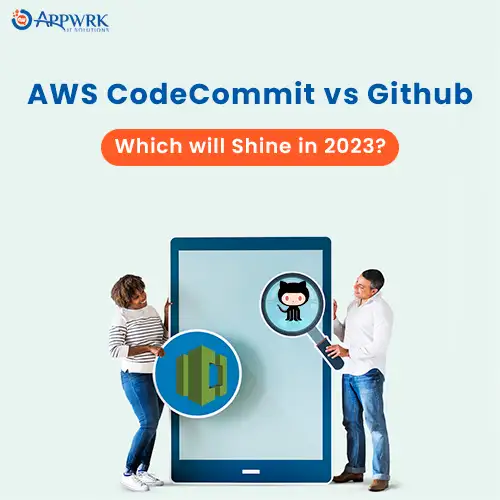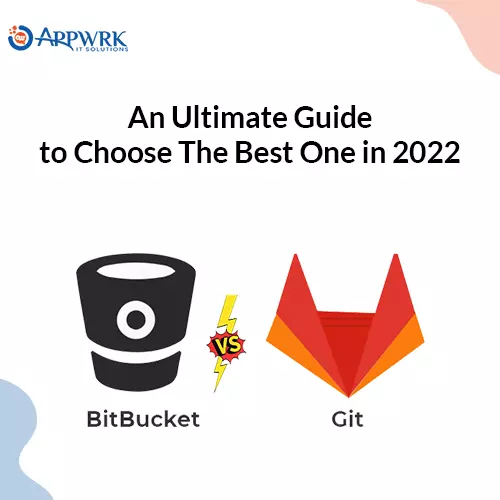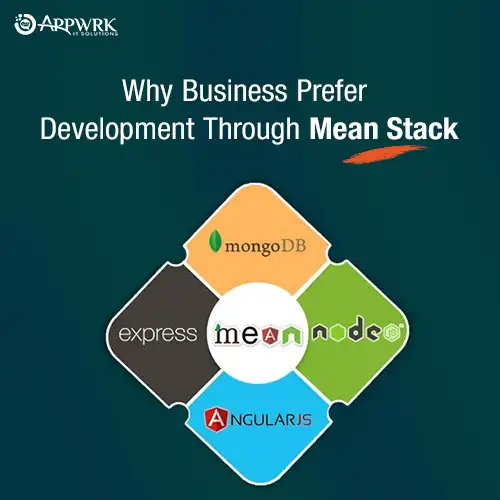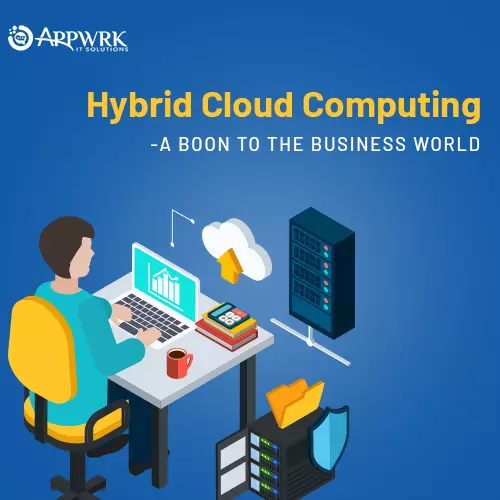Google Cloud Vs AWS: End-to-End Fair Comparison
Google Cloud Vs AWS? The battle for public cloud computing dominance between these platforms is a two-horse contest. In IaaS (the infrastructure as a service) and PaaS (platform as a service) marketplaces, these two major cloud providers have a commanding lead. AWS has a stronghold on the market. “Amazon growth continued to match overall market growth closely; thus, it retained its 32% share of the worldwide [cloud] market in the first quadrant of 2021,” according to a Synergy Research Group research. Second-ranked Google Cloud, which specializes in artificial intelligence, is well-positioned for fast development as the AI market matures and is known for delivering discounts. If you cannot decide which platform is best for your cloud computing needs, then this article is a must-read. This article will highlight the basic overview of both Google Cloud and AWS and then dive a bit deeper into them. So, let’s don’t waste more time and jump onto the topic of discussion.
Google Cloud Vs AWS: Overview
Google Cloud is owned by Google, while Amazon owns Amazon Web Services. These two platforms compete heavily to gain a significant market share in cloud computing. Though Amazon Web Service is the best public cloud provider, Google Cloud Platform has also become immensely popular over the years. Both provide outstanding benefits over one another and beat each other in the highly competitive cloud computing market. So, let’s find out which one is the most iconic for your cloud computing needs in 2021.
Let’s discuss in detail these two leading giants.
Google Cloud: Deep Dive
Google Cloud Platform is a set of cloud computing services provided by Google that run on the same infrastructure as Google’s internal products, such as Google Search, Google Drive, Gmail, and YouTube. It offers several modular cloud services, including computing, data analytics, data storage, and machine learning. A credit card or bank account number is required for registration to use these cloud services. Infrastructure as a service, platform as a service, and serverless computing environments are all available through Google Cloud Platform.

Image source: Google Cloud
App Engine, Google’s first cloud computing service, was announced in April 2008 to develop and host web applications in Google-managed data centres. In November 2011, the service was made widely available. Google has introduced several cloud services to App Engine since it was first announced. The Google Cloud Platform public cloud infrastructure, application programming interfaces (APIs) for machine learning, Google Workspace (G Suite), enterprise versions of Android and Chrome OS, and enterprise mapping services are all part of Google Cloud.
Categories of Google cloud
Google cloud is divided into four categories.
Hosting + compute
- Compute engine
- App engine
Storage
- Cloud Datastore
- Cloud storage
- Cloud SQL
Big Data
- Big Query
Services
- Translate API
- Prediction API
- Cloud Endpoints
Google cloud platform has also supported some of the best open source technologies; let’s have a quick look.
Past successes
- Kubernetes is also known as K8, is an open-source container orchestration system for automating containerized applications.
- Go is an open-source programming language.
- TensorFlow is a free and open-source library for machine learning.
New relationships
- InfluxData is a real-time and open-source time-series database.
- MongoDB is an application data platform.
- Neo4j is the fastest path to graphs.
- Confluent sets your data in real-time streams.
- DataStax is an open stack for modern data apps.
- Elastic is a native web crawler.
- Redis Labs is a real-time data platform.
Features of Google Cloud
- It offers an on-demand self-service.
- Broad network access.
- It has resource pooling and rapid elasticity.
- It provides a serverless environment that connects cloud services with a significant focus mainly on microservices architecture.
- It offers powerful data analytics.
- It has a future-proof infrastructure.
- It allows employees to work from anywhere.
- It offers an easy payment configuration.
What Benefits Does Google Cloud Offer?
- It offers higher productivity gained through quick access to innovation.
- Cost-efficiency due to long-term discounts.
- It allows the constant inclusion of more languages.
- It allows quick collaboration.
- It offers higher uptime and reliability.
- It helps you run your app wherever you need them.
- It transforms the way you connect and collaborate.
- Perfect for getting customized solutions for different industries.
AWS: Deep Dive
Amazon web service is a cloud service provider from Amazon known to provide different services in different domains, including computing, storage, and delivery. The main objective of AWS to offer such services is the easy deployment of various applications in the cloud platform to help scale and grow businesses faster and more efficiently.

If we look back into history, it was launched in 2006. Today, it has become one of the most-purchased cloud platforms due to its various advantages and features. Since its existence, it has been providing on-demand APIs and cloud computing platforms to companies, governments, and of course, individuals on meters as-you-go basis. As of 2021, AWS is offering around 200 products and services. Networking, database, analytics, deployments, developer tools, and tools for the internet of things are some of the few examples. The most popular and widely used include Amazon Simple Storage Services, AWS Lambda, Amazon elastic compute cloud, and Amazon connect.
AWS services are also categorized into three types. Let’s have a look at them.
- Infrastructure as a service (IaaS)
- Software as a service (SaaS)
- Platform as a service (PaaS)
Basic Features of Amazon Web Services
- The total cost of ownership is very low compared to any private/dedicated server.
- It offers hybrid capabilities.
- It allows you to deploy your applications in multiple regions around the globe with just a few clicks.
- It provides centralized billing and management.
- It allows organizations to use already familiar business models, databases, operating systems, and architectures.
- It allows you cloud access quickly.
New AWS features for 2021
AWS IoT SiteWise Monitor: It now supports AWS CloudFormation, allowing users to use CloudFormation to build and manage AWS IoT SiteWise Monitor resources, including portals, projects, dashboards, widgets, and properties.
AWS Control Tower now adds an organization-level aggregator to help in the detection of external AWS Config rules. It will give you access to externally created AWS Configuration rules in the AWS Control Tower UI, in addition to AWS Configuration rules created by AWS Control Tower. The aggregator allows AWS Control Tower to recognize this information and link to the AWS Config console without requiring AWS Control Tower to acquire access to the AWS Config console.
Amazon S3: S3 has the best scalability, data availability, security, and performance in the business. You may use it to store and safeguard any quantity of data for a variety of use cases, including data lakes, mobile and web apps, archives, enterprise applications, IoT devices, and big data analytics, regardless of the size of your organization or industry. The best part about Amazon S3 is that it has simple management capabilities to help you organize your data and set up fine-tuned access controls to match your specific business requirements.
Amazon ECS: A new administration console for Amazon Elastic Container Service has been released. In fewer, easier steps, you can now create, update, view, and delete Amazon ECS services and tasks, as well as see ECS clusters. You can also use the new console to learn about ECS capabilities, identify your ECS resources quickly and conveniently, and switch back to the old interface if necessary. The new console will be regularly upgraded until it has all of the capabilities of the old one, and both consoles will be usable until then.
AWS Data Exchange Publisher Coordinator: and AWS Data Exchange Subscriber Coordinator are new AWS Solutions that automate the publication and consumption of data in the AWS Data Exchange.
What Benefits Does AWS Offer?
- It offers unlimited server capacity.
- It has reliable encryption and security.
- It also provides managed IT services.
- It is flexible and affordable.
- It improves productivity.
- It offers an array of tools.
Google Cloud Vs AWS: Comparison in brief
We hope you have gone through the basic overview of Google Cloud and AWS and their overview, history, and features.
AWS Vs Google Cloud: Tools
AWS
- AWS cloud9
- PyCharm
- Rider
- Azure DevOps
- Visual Studio
- IntelliJ
- WebStorm
Google Cloud
- AutoML
- Vertex AI
- Dialogueflow CX
- Vision OCR
- Base OCR
- Form Parser
AWS Vs Google Cloud: Hybrid and multi-cloud options
AWS
- AWS local zones
- AWS snowball
- AWS snowcone
- AWS wavelength
- AWS outposts
- Amazon EKS anywhere
- VMware Cloud on AWS
Google Cloud
- Looker
- Cloud Build
- Anthos
- Traffic Director
- Operations
- Cloud Run for Anthos
AWS Vs Google Cloud: High-profile customers
AWS
- Netflix
- LG
- Phillips
- Coca Cola
- Petco
- Capital One
- General Electric
- Stanford University
Google Cloud
- Equifax
- Target
- Deutsche Bank
- PayPal
- P&G
- Home Depot
- UPS
- Etsy
AWS Vs Google Cloud: Availability Zones
AWS
- Europe
- North America
- South America
- Asia
- Africa
- Pacific
- Middle East
Google Cloud
- Europe
- Asia
- Australia
- North America
- South America
AWS Vs Google Cloud: Pricing
For AWS
If the machine type is the smallest with two virtual CPUs and 8 GB of RAM, AWS will cost you around US$69 per month. However, if the machine type is the largest that includes 3.84 TB of RAM and 128 vCPUs, then it will cost you around US$3.97/hour.
For Google Cloud
If the machine type is the smallest, containing two virtual CPUs and 8 GB of RAM, it will cost you around US$52/month. If the machine type is the largest, which includes 3.75 TB of RAM and 160 vCPUs, then it will cost you approximately US$5.32/hour. So, this was the comparison between AWS and Google Cloud. Now let’s have a look at the comparison table, so you can also resolve all of your doubts that are still getting through your mind.
Found this comparison table helpful? We hope now you have a better picture of what Google Cloud and AWS mean and how they are different.
Who is the winner?
So, who wins the battle? Which one do you choose for your cloud computing needs? Well, it’s hard to say which one is better for your needs because comparing both of these complex platforms is not an easy job, especially when both are ruling the cloud markets. If you are looking for a trustworthy platform, then AWS has outstanding customer service. Using it, you will enjoy a healthy bond of client relationship that will last for years. However, if you look at the pricing model, then Google cloud has more customization options. So, as per your needs, you can choose the one that best suits your business needs. With this, we are ending this article. We hope you’ve enjoyed reading this and will stay tuned for more such articles.
About The Author






 Free Quote
Free Quote
















































